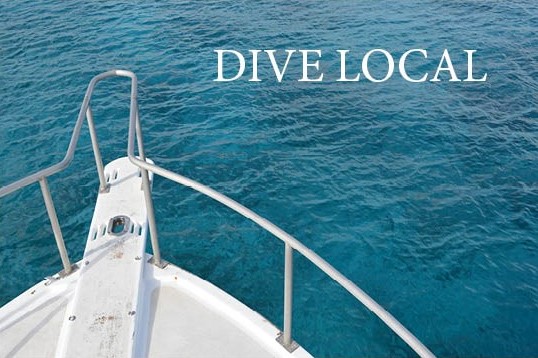 DIVE LOCAL™ – A Community Effort
DIVE LOCAL™ – A Community Effort
Building a Local Diving Community
Message to Local Divers
By Gene Muchanski, Executive Director,
Dive Industry Association, Inc.
Stay Active
The best way to build a thriving global diving community is to show people how they can become active scuba divers and enjoy a great recreation for a lifetime.
Four Steps to Becoming an Active Scuba Diver:
- Learn to Dive
- Buy Your Gear
- Go Diving
- Stay Active
Developing a pathway for divers to remain active in the recreational diving community may be the most significant achievement of the 21st century for our industry. In preparing for this article, I looked at ways the industry used in the past to keep people interested in pursuing scuba diving as an ongoing recreation. We will explore some of the concepts that worked, some that did not, and some of the shortcomings the industry relied on to grow the industry but failed. We will also look at some new, innovative ways that could add a spark to our industry and get things moving again.
Been There – Done That: If you follow the first three ways of creating divers in our industry, you may think that learning to dive, buying your gear, and going diving is all that is needed to create a diving community that is excited about scuba diving and will continue to be active. I bet you are even surprised to know that even after a positive experience with scuba diving, many divers are saying, “I learned to dive, bought my gear, and went diving. Now what?”
Not more of the same: The focus of this series is to create reasons for divers to stay active in the diving community once they have learned to dive, bought their gear, and gone diving. In the past three articles we have created a pathway for people to get to this point. I believe the industry has come to a stalemate once a person becomes certified. A common misconception to create active divers is to do more of the same. As Dive Industry Professionals we cannot simply recommend that certified divers need to take more diving courses, buy more gear, and go on more diving trips to remain active. Although we all know that continuing education helps, buying dive specific equipment for a trip helps, and experiencing a wider range of liveaboards and resorts is a good thing, it is not a sustainable solution to diver inactivity. We need a more permanent solution.
Promoting the Scuba Diving Lifestyle: Living in the State of Florida, I see the economic impact of watersports lifestyles like boating, fishing, and surfing. The lifestyles associated with these three watersports are impressive. The economic impact it has on the local economy is incredible. The bottom-line benefit of these lifestyles is that they keep their participants active in their recreation. The recreational diving industry can learn a lot from our fellow watersport recreations. We are in need of a paradigm shift in the way we look at, manage, and promote our industry. Creating a scuba diving lifestyle is a broad approach to enjoying the fact that we are scuba divers every day without having to get wet seven days a week. There are plenty of other things to keep us in touch with the excitement of diving and adventure travel. All we have to do is look for them. That is the whole purpose of this article. Let’s explore some of things we can do as an industry to keep our global diving community’s interest in diving at peak levels.
DIVE LOCAL: After becoming a certified diver, the best way to keep your interest in diving is to become a part of your local diving community. You’ll meet other divers, just like you, who are actively participating in this great recreation of ours. The Dive Industry Association, along with it’s non-profit organization, The Dive Industry Foundation, has created a website called DIVE LOCAL, where divers can learn all about the diving industry and locate a professional diving adventure store, a dive club, a dive boat, or a diving Instructor in their own local diving community or worldwide. The website has a Shows & Events calendar for the current year. Our purpose is to build an Information & Resource Center that the Global Diving Community can use to find verified sources of diving equipment, dive training, local diving, adventure dive travel, diving and diving related non-profit organizations, and merchants of diving lifestyle products. Our efforts will always be a work-in-progress but our mission is to be the Number 1 go-to source for everything diving and diving related.
Editor’s Note: As we offer suggestions to create ways to keep divers active, we will skip the past history of some of these ideas and stick with some 21st century ways that may have a direct impact on retaining divers in our global community. So, let’s look at some ways that will help divers stay active.
Join a Dive Club: Dive Clubs can and should be the focal point of every Local Diving Community. A successful club should include all types of diving such as sport diving, tech diving, freediving, spearfishing, mermaiding, and the like. As a global community, recreational diving is a big tent. Let’s recruit divers of all kinds. All divers have something in common and can splinter off into smaller specialty groups if necessary. Dive Clubs should be a way for divers to socialize with each other and network with others who have both similar and dissimilar interests. The social calendar of dive clubs should be what attracts divers to join a club and keep their membership active. When dive clubs were first started in the United States, they were formed to network with other divers to learn about the advances in diving equipment, dive training, and local diving. Information was not as readily available as it is today. In the 21st century we can get all of the information we need about the global diving industry from the internet, but there is no guarantee that the information we see on the internet is current or reliable. Networking with other divers gives us an opportunity to hear their personal diving experiences first-hand. So, that means we have to redesign or re-imagine what a successful dive club looks like. Believe me, that is not going to be a simple task.
Modern day dive clubs are formed for different reasons. Some clubs are started to sell more diving equipment, dive training, local dive boat trips, and fly-to dive trips. Some clubs are started for the socialization aspects. It is best to check with the club’s leadership to see where their equipment, training, and travel priorities are, before joining.
Regardless of who the founders are, the administrative aspects of a dive club should be set up as a business. Specifically, as a Members Association. An attorney can guide you through the proper incorporation process. The club should have an elected Board of Directors and committee volunteers. A detailed charter document will state all of the rules, regulations, and procedures for the club so there are no misunderstandings about member benefits. As a diving business involved in the acquisition and service of members, it should have a permanent address and contact information that does not change with each new club president. Dive Clubs should have their own website and social media accounts to showcase their activities and to attract new members. If managed correctly, a dive club can have a very positive impact on a local diving community. It won’t be easy to start and operate but if it is successful, it will be well worth the time and effort expended.
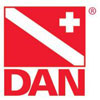 Join DAN: The Divers Alert Network is your Dive Safety Association. DAN promotes diver safety, operates a 24/7 Emergency Hotline, conducts dive medical research, and collaborates with industry experts to establish best practices for safe operations. They are involved in medical, safety, research and insurance. Membership in DAN will keep you current with DAN’s medical assistance services available to divers, their safety services, research, education, and training. Their quarterly magazine, Alert Diver, is by far the best in the industry. The 100+ page magazine normally includes topics in medical research, safety, and training, plus diving equipment, dive training, dive travel, and underwater photography. Join DAN Today by checking out their website.
Join DAN: The Divers Alert Network is your Dive Safety Association. DAN promotes diver safety, operates a 24/7 Emergency Hotline, conducts dive medical research, and collaborates with industry experts to establish best practices for safe operations. They are involved in medical, safety, research and insurance. Membership in DAN will keep you current with DAN’s medical assistance services available to divers, their safety services, research, education, and training. Their quarterly magazine, Alert Diver, is by far the best in the industry. The 100+ page magazine normally includes topics in medical research, safety, and training, plus diving equipment, dive training, dive travel, and underwater photography. Join DAN Today by checking out their website.
Subscribe to Print Dive Magazines: There are still a few print magazines in the diving industry. As we mentioned above, Alert Diver from DAN is our all-time favorite. We also subscribe to and recommend Scuba Diving, the official publication of PADI Club.
On-Line Magazines: Online magazines have become very popular in the industry. They are relatively inexpensive to produce compared to print magazines, because they can publish without the expense of printing and postage. Obtaining quality content is a major challenge for online magazines. It is very expensive to hire staff writers and photographers to travel the globe to write articles of interest about diving equipment, dive training, dive travel, and environmental issues. The constant challenge of acquiring paid subscribers and paid advertisers to cover their cost of obtaining quality content is overwhelming. As a trade association we are constantly researching current online magazines for their potential in reaching a large enough audience in the recreational diving industry to justify their efforts. Our own monthly online magazine, The Dive Industry Professional was created to keep divers in touch with important aspects of the recreational diving industry such as diving equipment, dive training, dive travel, environmental and non-profit organizations, and scuba diving lifestyle products and services. For the certified diver in all of us, we include our Shows & Events column and articles about diving and dive destinations worldwide. Subscription if FREE to all divers through our Constant Contact Safe Subscribe opt-in. Free Subscription
 Participate in Regional Dive Shows: Regional dive shows were established to give local diving communities something to do during the off season and prepare divers for the next upcoming season. Exhibitors and speakers from around the world would travel to local diving community events like Boston Sea Rovers, Beneath the Sea, Sea Space, Our World Underwater, Ocean Fest, and Scuba Show, to show them the latest developments in diving equipment, dive training, dive travel, and adventure diving techniques. Alas, trade and consumer dive shows are not what they used to be. Many, almost all, have come to an end. For the past 50 years I’ve seen the rise and fall of too many shows and events, nationwide. With that said, There is still nothing that compares to a face-to-face event like a Regional or National Dive Show. The benefits to the local diving community and the global diving industry can be tremendous. More than just something to do during the off-season, regional and national shows and events are a gathering place for the local and global diving communities. Regional shows attract exhibitors, speakers, and sponsors from all across the globe. Regional shows appeal to divers and non-divers alike, depending on how the show is set up. Nowhere else can an attendee experience the latest diving equipment, dive training, dive travel, non-profit organizations, and diving lifestyle products, all in one place at one short period of time.
Participate in Regional Dive Shows: Regional dive shows were established to give local diving communities something to do during the off season and prepare divers for the next upcoming season. Exhibitors and speakers from around the world would travel to local diving community events like Boston Sea Rovers, Beneath the Sea, Sea Space, Our World Underwater, Ocean Fest, and Scuba Show, to show them the latest developments in diving equipment, dive training, dive travel, and adventure diving techniques. Alas, trade and consumer dive shows are not what they used to be. Many, almost all, have come to an end. For the past 50 years I’ve seen the rise and fall of too many shows and events, nationwide. With that said, There is still nothing that compares to a face-to-face event like a Regional or National Dive Show. The benefits to the local diving community and the global diving industry can be tremendous. More than just something to do during the off-season, regional and national shows and events are a gathering place for the local and global diving communities. Regional shows attract exhibitors, speakers, and sponsors from all across the globe. Regional shows appeal to divers and non-divers alike, depending on how the show is set up. Nowhere else can an attendee experience the latest diving equipment, dive training, dive travel, non-profit organizations, and diving lifestyle products, all in one place at one short period of time.
A well-planned regional dive show will showcase the type of diving that is popular in the local diving community where the show is being held and also cover dive destinations outside of the local area. A good example was Our World Underwater in Chicago. The show drew a worldwide audience that wanted to learn all about diving in the Great Lakes, also known as the freshwater wreck diving capital of the world. At the same time, exhibitors and speakers from around the world would exhibit or speak at Our World Underwater to educate and entertain divers from the North Central United States, about the different types of diving from across the globe.
Walking around the exhibit hall looking at the latest in diving equipment and seeing some of the best diving destinations in the world can be the highlight of a diver’s year. Sitting in on some of the seminars that are typically given during a dive show or film show is what charges our “diving batteries.” I still remember some of the great seminars I’ve attended in the past 50 years. But what brings it all together, in my opinion, are the social aspects of being at a regional or national dive show or event. Diving is a social activity. Without the show parties, hospitality suites, and meet the speakers and exhibitors opportunities, dive shows and events are just not the same. I can testify that some show producers and exhibitors have stopped the parties because they can be expensive. If you think that show parties are just non-revenue generating activities, you’ve missed the whole point of what makes a dive show popular. It’s called the cost of doing business and maybe it’s the reason you don’t have any business.
Regional dive shows should have a diversified line-up of seminar speakers and topics. Attendees pay to see seminar presentations from local and nationally acclaimed speakers. Seminar topics should be diversified, both in content and geographical origin. Adventure travel and specialty diving seminars are always popular with the audiences. Environmental films and marine career presentations have always drawn large crowds. There are so many new things to learn from listening to speakers from around the world and it is a special incentive to attend film shows and events if the attendees have an opportunity to meet the speakers in a social setting.
Workshops are popular at regional dive shows because they give local attendees an opportunity to participate in hands-on events with an industry expert or influencer. Regional workshops attract a larger audience from a larger geographical area and make it very cost effective for the presenter to conduct, and for the attendees to participate. Workshops have been successfully conducted before, during, and immediately after a major regional event.
The three remaining regional diving shows in the U.S. are Boston Sea Rovers, Beneath the Sea and Scuba Show. The Dive Industry Association publishes a Shows & Events calendar on their website, in a monthly trade magazine; The Dive Industry Professional, and in their Annual Trade Directory.
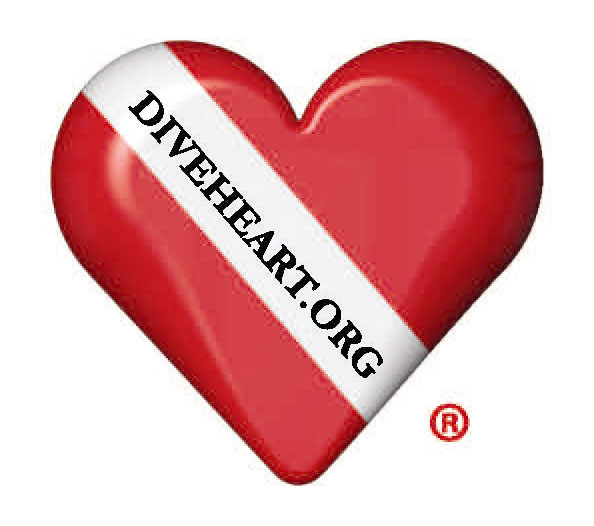 Volunteer with a Diving-Related Non-Profit Organization: There are many excellent diving and diving related non-profit organizations that are looking for volunteer help. Some are looking for specific talents like marketing, media, or graphic arts skills but most are just looking for volunteer manpower. Whether it’s helping with a beach clean-up or restoring a damaged coral reef, lending a hand to an environmental organization is a great way to stay active in your local diving community. If using scuba diving as a physical therapy tool is more to your liking, fine organizations like Diveheart would love to train you to be a dive buddy for someone with a physical challenge.
Volunteer with a Diving-Related Non-Profit Organization: There are many excellent diving and diving related non-profit organizations that are looking for volunteer help. Some are looking for specific talents like marketing, media, or graphic arts skills but most are just looking for volunteer manpower. Whether it’s helping with a beach clean-up or restoring a damaged coral reef, lending a hand to an environmental organization is a great way to stay active in your local diving community. If using scuba diving as a physical therapy tool is more to your liking, fine organizations like Diveheart would love to train you to be a dive buddy for someone with a physical challenge.
Start a Hobby: The best way to stay active in diving is to have a reason to go diving. Many divers have discovered photography as a great way to enhance their diving experience, giving them more reasons to go diving again, and giving them something to follow up on after each dive. The study of photography often leads to other things that may be part of the diving experience, something diving related, or even have nothing to do with diving. When you become passionate about a particular hobby, your passion often finds new ways to express itself. I felt the same way after I started doing underwater video filming. I first discovered a new reason to go diving and then I found myself wanting to not only film underwater, but on the surface, and from the air. As video film makers already know, shooting video is only the first step to a very engaging hobby.
There are many diving and diving related activities and hobbies that will keep you actively engaged in the diving community. Wreck diving, cave diving, technical diving, and metal detecting are all captivating aspects of the diving experience. Within all of these specialties, there are three ways to enjoy them and share your experiences with others. The first one, of course, is to become a Mavin, or an authority, in the specialty of your choice. Just keep getting better at what you do, for your own enjoyment. The second way is to write about your experiences or photograph or video tape them for publication. Believe me, there is a gigantic need for quality content of this type in the diving industry. The third way is to become a certified instructor in your specialty and teach others to do what you do.
 Become a Dive Industry Professional: A Dive Industry Professional is someone who works in their hobby, now called their profession, on a full-time or part-time basis. It doesn’t matter if you get paid to work or not. As someone who is now working in the trade you will have an opportunity to stay active. There are pluses and minuses to being a Dive Industry Professional as opposed to being a non-leadership, certified diver. Certain jobs or responsibilities require that you become certified as a Divemaster or Instructor. That will require more training and a requirement to pay annual dues and purchase liability insurance. To keep Dive Industry Professionals active in the global diving community and the global diving business network, our association has published a white paper about staying active in the trade, in 12 progressive steps.
Become a Dive Industry Professional: A Dive Industry Professional is someone who works in their hobby, now called their profession, on a full-time or part-time basis. It doesn’t matter if you get paid to work or not. As someone who is now working in the trade you will have an opportunity to stay active. There are pluses and minuses to being a Dive Industry Professional as opposed to being a non-leadership, certified diver. Certain jobs or responsibilities require that you become certified as a Divemaster or Instructor. That will require more training and a requirement to pay annual dues and purchase liability insurance. To keep Dive Industry Professionals active in the global diving community and the global diving business network, our association has published a white paper about staying active in the trade, in 12 progressive steps.
Summary: Creating an active diver in the global diving community should be the Purpose of those working in the Global Diving Business Network. It should be our Mission to encourage people to 1) Learn to Dive 2) Buy their Gear 3) Go Diving and 4) Stay Active. The diving industry lacks sustainable growth because we have not focused on acquiring new divers to fill the pipeline, once a certified diver has reached the “stay active” phase. Instead, many in the industry focus on what we call “after market products and services” because a certified diver has already been created. The downfall to this strategy is that sellers of diving equipment, training, and travel, have a tendency to frequently over-sell the certified diver market instead of creating new divers.
Becoming an active diver is an ongoing process that all divers can look forward to. It is up to the Global Diving Business Network to create a sustainable pathway to make that possible. Check with your marketing department to create and implement a customer acquisition and diver retention strategy for your company.
For more information on becoming a Member of our Global Diving Business Network, contact Gene Muchanski, Executive Director, Dive Industry Association, Inc., 2294 Botanica Circle, West Melbourne, FL. Phone 321-914-3778. Email: gene@diveindustry.net web: www.diveindustry.net
# # #


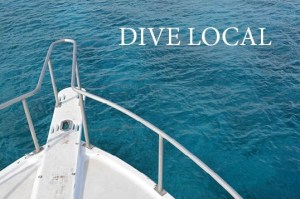


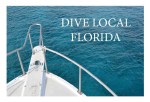
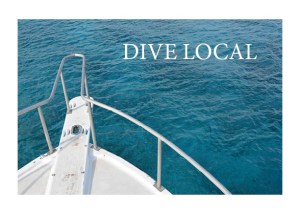

 DIVE LOCAL™ – A Community Effort
DIVE LOCAL™ – A Community Effort Join DAN: The Divers Alert Network is your Dive Safety Association. DAN promotes diver safety, operates a 24/7 Emergency Hotline, conducts dive medical research, and collaborates with industry experts to establish best practices for safe operations. They are involved in medical, safety, research and insurance. Membership in DAN will keep you current with DAN’s medical assistance services available to divers, their safety services, research, education, and training. Their quarterly magazine, Alert Diver, is by far the best in the industry. The 100+ page magazine normally includes topics in medical research, safety, and training, plus diving equipment, dive training, dive travel, and underwater photography.
Join DAN: The Divers Alert Network is your Dive Safety Association. DAN promotes diver safety, operates a 24/7 Emergency Hotline, conducts dive medical research, and collaborates with industry experts to establish best practices for safe operations. They are involved in medical, safety, research and insurance. Membership in DAN will keep you current with DAN’s medical assistance services available to divers, their safety services, research, education, and training. Their quarterly magazine, Alert Diver, is by far the best in the industry. The 100+ page magazine normally includes topics in medical research, safety, and training, plus diving equipment, dive training, dive travel, and underwater photography.  Participate in Regional Dive Shows: Regional dive shows were established to give local diving communities something to do during the off season and prepare divers for the next upcoming season. Exhibitors and speakers from around the world would travel to local diving community events like Boston Sea Rovers, Beneath the Sea, Sea Space, Our World Underwater, Ocean Fest, and Scuba Show, to show them the latest developments in diving equipment, dive training, dive travel, and adventure diving techniques. Alas, trade and consumer dive shows are not what they used to be. Many, almost all, have come to an end. For the past 50 years I’ve seen the rise and fall of too many shows and events, nationwide. With that said, There is still nothing that compares to a face-to-face event like a Regional or National Dive Show. The benefits to the local diving community and the global diving industry can be tremendous. More than just something to do during the off-season, regional and national shows and events are a gathering place for the local and global diving communities. Regional shows attract exhibitors, speakers, and sponsors from all across the globe. Regional shows appeal to divers and non-divers alike, depending on how the show is set up. Nowhere else can an attendee experience the latest diving equipment, dive training, dive travel, non-profit organizations, and diving lifestyle products, all in one place at one short period of time.
Participate in Regional Dive Shows: Regional dive shows were established to give local diving communities something to do during the off season and prepare divers for the next upcoming season. Exhibitors and speakers from around the world would travel to local diving community events like Boston Sea Rovers, Beneath the Sea, Sea Space, Our World Underwater, Ocean Fest, and Scuba Show, to show them the latest developments in diving equipment, dive training, dive travel, and adventure diving techniques. Alas, trade and consumer dive shows are not what they used to be. Many, almost all, have come to an end. For the past 50 years I’ve seen the rise and fall of too many shows and events, nationwide. With that said, There is still nothing that compares to a face-to-face event like a Regional or National Dive Show. The benefits to the local diving community and the global diving industry can be tremendous. More than just something to do during the off-season, regional and national shows and events are a gathering place for the local and global diving communities. Regional shows attract exhibitors, speakers, and sponsors from all across the globe. Regional shows appeal to divers and non-divers alike, depending on how the show is set up. Nowhere else can an attendee experience the latest diving equipment, dive training, dive travel, non-profit organizations, and diving lifestyle products, all in one place at one short period of time. Volunteer with a Diving-Related Non-Profit Organization: There are many excellent diving and diving related non-profit organizations that are looking for volunteer help. Some are looking for specific talents like marketing, media, or graphic arts skills but most are just looking for volunteer manpower. Whether it’s helping with a beach clean-up or restoring a damaged coral reef, lending a hand to an environmental organization is a great way to stay active in your local diving community. If using scuba diving as a physical therapy tool is more to your liking, fine organizations like
Volunteer with a Diving-Related Non-Profit Organization: There are many excellent diving and diving related non-profit organizations that are looking for volunteer help. Some are looking for specific talents like marketing, media, or graphic arts skills but most are just looking for volunteer manpower. Whether it’s helping with a beach clean-up or restoring a damaged coral reef, lending a hand to an environmental organization is a great way to stay active in your local diving community. If using scuba diving as a physical therapy tool is more to your liking, fine organizations like  Become a Dive Industry Professional: A Dive Industry Professional is someone who works in their hobby, now called their profession, on a full-time or part-time basis. It doesn’t matter if you get paid to work or not. As someone who is now working in the trade you will have an opportunity to stay active. There are pluses and minuses to being a Dive Industry Professional as opposed to being a non-leadership, certified diver. Certain jobs or responsibilities require that you become certified as a Divemaster or Instructor. That will require more training and a requirement to pay annual dues and purchase liability insurance. To keep Dive Industry Professionals active in the global diving community and the global diving business network, our association has published a white paper about staying active in the trade, in 12 progressive steps.
Become a Dive Industry Professional: A Dive Industry Professional is someone who works in their hobby, now called their profession, on a full-time or part-time basis. It doesn’t matter if you get paid to work or not. As someone who is now working in the trade you will have an opportunity to stay active. There are pluses and minuses to being a Dive Industry Professional as opposed to being a non-leadership, certified diver. Certain jobs or responsibilities require that you become certified as a Divemaster or Instructor. That will require more training and a requirement to pay annual dues and purchase liability insurance. To keep Dive Industry Professionals active in the global diving community and the global diving business network, our association has published a white paper about staying active in the trade, in 12 progressive steps. I seem to remember that Scubapro formed a training organization to teach Dive Industry Professionals about diving equipment. I believe it was called SEA – Scubapo Educational Association. I’ll have to check my archives. Anyway, the diving industry needs an organization like that again. I believe there is a need for a four-part diving equipment training program, conducted by the diving equipment manufacturers. The first part would be an introductory course that would teach the basic theory about diving equipment. The second part would dive into more details about the features and benefits of individual pieces of equipment. The third part would be a program to certify “Professional Diving Equipment Advisors.” I believe this part could include sales training on topics that help identify diver equipment needs. This part would be useful to Dive Industry Professionals who have a desire to become industry influencers. The fourth part of this program would be about equipment maintenance and repair and lead to a certification as an Equipment Repair Specialist.
I seem to remember that Scubapro formed a training organization to teach Dive Industry Professionals about diving equipment. I believe it was called SEA – Scubapo Educational Association. I’ll have to check my archives. Anyway, the diving industry needs an organization like that again. I believe there is a need for a four-part diving equipment training program, conducted by the diving equipment manufacturers. The first part would be an introductory course that would teach the basic theory about diving equipment. The second part would dive into more details about the features and benefits of individual pieces of equipment. The third part would be a program to certify “Professional Diving Equipment Advisors.” I believe this part could include sales training on topics that help identify diver equipment needs. This part would be useful to Dive Industry Professionals who have a desire to become industry influencers. The fourth part of this program would be about equipment maintenance and repair and lead to a certification as an Equipment Repair Specialist.